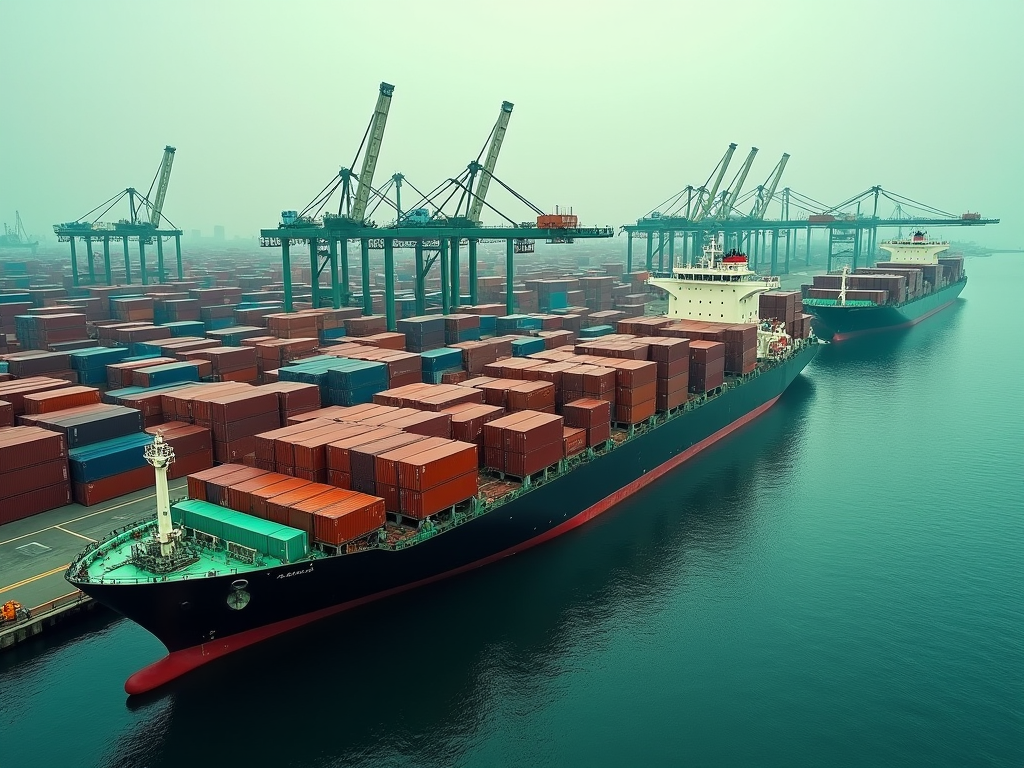Starting an import-export business in Dubai, UAE, is a lucrative opportunity due to its strategic location, tax advantages, and a growing economy. This article serves as a comprehensive guide that covers essential steps, legal requirements, and tips to establish your business successfully. The goal is to equip aspiring entrepreneurs with the necessary knowledge and tools to navigate the complexities of international trade in this vibrant market.
Understanding the Import-Export Business Landscape in Dubai

Dubai is a global hub for trade, boasting a robust infrastructure and a favorable regulatory environment for businesses. The emirate’s strategic location allows access to markets in Asia, Europe, and Africa, making it an ideal base for import-export activities. The city is also home to numerous free zones, which offer tax benefits and simplified customs procedures. Understanding the local market dynamics, including consumer preferences and sourcing opportunities, is crucial for success. Moreover, having a solid business plan that outlines your objectives, target market, and financial projections is vital to navigate the competitive landscape effectively.
Registering Your Import-Export Business

Before you can start operations, you need to register your business, which involves several steps to ensure compliance with local laws and regulations. Here’s a simplified checklist of the registration process:
- Choose a suitable business name that aligns with your business activities.
- Decide on the legal structure of your business (e.g., sole proprietorship, LLC, etc.).
- Obtain initial approval from the Department of Economic Development (DED).
- Secure necessary licenses (trade license and import-export license).
- Register for a Value Added Tax (VAT) number if applicable.
- Open a corporate bank account to handle transactions smoothly.
This registration process can take several weeks, so it’s advisable to plan accordingly. Considering the assistance of local agencies can expedite the process and ensure compliance with all legalities.
Understanding Customs Regulations and Tariffs
One of the key components of running an import-export business is understanding customs regulations and tariffs that may apply to your products. The UAE has a well-defined set of customs rules, and familiarizing yourself with these will help you avoid legal complications and delays.
Here’s what you need to know:
- The UAE has a federal customs authority that establishes regulations for imports and exports.
- Check the HS Code (Harmonized System Code) for your products to understand the applicable duties and taxes.
- Be aware of banned or restricted items that require special permits.
- Documentation such as invoices, packing lists, and certificates of origin are crucial for smooth customs clearance.
- Utilize the customs clearance services that can aid in navigating the complex paperwork and ensure compliance.
Regular updates to customs regulations mean staying current with changes is critical. Engage with a customs broker if necessary to guide you through this process.
Building Relationships and Finding Suppliers/Clients
Effective networking is one of the cornerstones of a successful import-export business. Establishing solid relationships with suppliers, clients, and logistics providers can greatly enhance your operational smoothness. Here are strategies to build and maintain these relationships:
- Attend trade shows and business expos to meet suppliers and potential buyers.
- Utilize online platforms, such as Alibaba, to identify suitable suppliers.
- Join local trade associations to connect with industry peers.
- Leverage social media for marketing and networking opportunities.
- Invest time in understanding cultural nuances when dealing with international clients.
Building trust is essential, as relationships based on mutual respect and transparency can lead to repeat business and referrals, both highly valued in this sector.
Logistics and Supply Chain Management
In import-export businesses, logistics is a critical component that involves handling the transportation, warehousing, and delivery of goods. Ensuring that your supply chain is efficient can save costs and enhance customer satisfaction. Consider the following points:
- Evaluate various shipping options such as air freight, sea freight, and land transport based on cost and time efficiency.
- Partner with reputable logistics companies that can facilitate smooth movement across borders.
- Implement inventory management systems to keep track of your goods.
- Set up warehousing solutions if necessary to handle your inventory effectively.
- Stay informed about international shipping regulations, including Incoterms, to mitigate risks.
The logistics aspect can be nuanced, so consider hiring professionals who specialize in international trade to streamline your operations effectively.
Conclusion
Starting an import-export business in Dubai provides a wealth of opportunities that can lead to substantial profits. By understanding the local and international trade dynamics, registering your business appropriately, navigating customs regulations, building robust relationships, and efficient logistics management, you’ll be well on your way to establishing a successful venture. Always remember that persistence and adaptability are key elements in this ever-evolving marketplace. With careful planning and execution, your import-export business could not only thrive but also contribute to Dubai’s thriving economic landscape.
Frequently Asked Questions
1. What are the initial costs involved in starting an import-export business in Dubai?
The initial costs can vary widely based on your business model, products, and operational scale, but typically include registration fees, licensing costs, inventory, shipping, and customs duties.
2. Do I need a local partner to start an import-export business in Dubai?
If you choose to set up a business outside a free zone, having a local partner can be beneficial, as they can assist with navigating regulations and local customs.
3. What types of products are most successful for import-export businesses in Dubai?
Electronics, textiles, chemicals, and food products tend to perform well in the Dubai market due to high demand, but it’s important to conduct market research to identify profitable niches.
4. Is there any industry-specific licensing I need to be aware of?
Some products such as food items, pharmaceuticals, and electronics may require specific licenses or certifications to comply with local regulations.
5. How can I enhance my chances of success in the import-export business?
Success can be enhanced by conducting thorough market research, maintaining strong vendor relationships, leveraging technology for logistics, and continually adapting to market changes.
